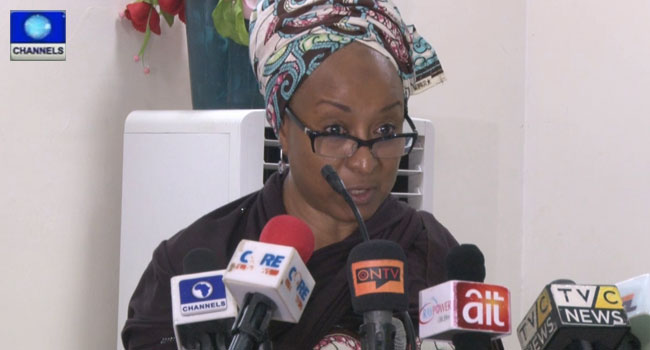The Special Adviser to President Muhammadu Buhari on Social Investment, Maryam Uwais, says elected officials tend to focus more on infrastructure while in office and that has impacted negatively on education which also contributes to the increase in the number of out-of-school children.
While acknowledging that infrastructure is very critical to the development of the country, Uwais said there are others issues that needs attention as well and it includes poverty, education among others.
Speaking on Channels Television’s Sunrise Daily on Thursday, Uwais suggested that the politics of addressing the rate of out-of-school children is not encouraging.
READ ALSO: FG Declares Friday, Monday Public Holiday For Easter Celebrations
She said, “So, there are many reasons and I think government is trying to put all these together. We should be more holistic about how we handle these issues. I agree with you that the numbers are large but there are many issues as I said and even structure issues.
“When elected officers get into government, they are more interested in seeing what is tangible, pointing at something and saying this is my legacy. When you budget for education at the state level, most of the money tends to go for infrastructure. But there are other issues that are more important and I am not downplaying infrastructure.
“We need more infrastructure; we need to look at the poverty issues, the underlining issues that compound the problem need to be addressed.”
Uwais also noted that despite all government interventions so far, there seems to be very little progress recorded regarding the number of children recorded out of school.
“We have a population that is growing much faster than our economy and we are not really targeting those issues that are increasing the numbers, there are so many disparities. We need to be more strategic about what it is that is causing this numbers,” she noted.
According to the United Nations Education Fund (UNICEF), about 10.5 million of the country’s children aged 5-14 years are not in school. Only 61 percent of 6-11 year-olds regularly attend primary school and only 35.6 percent of children aged 36-59 months receive early childhood education.



